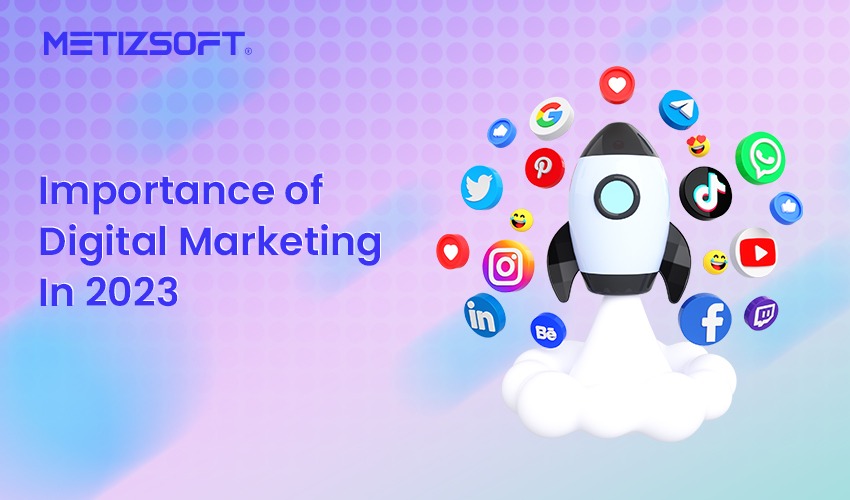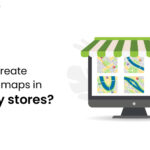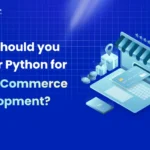
Table of Contents
Digital Marketing – Abbreviation!
When two extraordinarily talented and smart guys join hands, they do wonders. I am unsure whether this has been a famous saying, but I believe in the context. Digital marketing is no different than this.
It combines two words: Digital (Everything done on digital platforms using the internet). And Marketing (the promotion of your products or services to improve their usage, which leads to high-end ROI).
Digital marketing helps enterprises and entrepreneurs optimize their websites, social media sites, blogs, landing pages, and Emails. Moreover, campaigns to enhance the overall ROI (Rate of Interest).
According to the HubSpot report, 77% of consumers research brands they wish to engage in business with extensively. 51% do the same before buying any products.
These numbers are massive, showing how digital marketing has surpassed traditional marketing fundamentals, ensuring a promising future.
How does Digital Marketing Work?
Lately, not more than 15 years back, corporations used print media (newspapers, magazines, posters), television (video ads, headlines), and radio (announcements) channels to do their entire service and product marketing.
However, these options still have impacts. However, the rise of digital screens and the internet has led them to enhance digital marketing to enrich the global customer base. And why not? Digital marketing is easier to manage and offers a cost-effective solution.
Moreover, websites, social media, Email, texting apps, and YouTube have ensured quick and precise two-way interaction between the company and the customer.
These forms of digital marketing are simple to use and optimize. For example, when you opt for a blog or, as we know, a digital article, the content writer from your hired digital marketing firm will prepare the content. They will use the right keywords relevant to your subject and forward them to the SEO guy for review.
The SEO or Search Engine Optimization executives then thoroughly optimize that writing and publish it on your website’s blog section. Once published, he/she will share that blog link in various media to enhance its visibility.
The more readers click on the link and spend time reading the blog, the more viewership you will get, and your blog’s ranking will improve.
Similarly, the rest of the segment, like email marketing, PPC, or pay-per-click, happens. A quick setup followed by design/development of content and template, then promotion on various channels.
This way, digital marketing ensures the best possible results for your brand’s image in the global digital marketplace.
It is nothing but a clear review of your requirements, in detail R & D, and choosing an impactful strategy to get desirable results.
Digital Marketing – Key Benefits!
Digital marketing, compared to traditional marketing, can boost your revenue by opening new methods of customer engagement. Firstly, it will help you identify your target audience who most likely buys your products or implements your services.
Some of the classified benefits of Digital Marketing are:
- First and foremost, it is more cost-effective than traditional or outbound marketing.
- Digital Marketing is easier to adopt, and changes are measurable.
- Your conversion rate and lead will improve with digital marketing.
- With digital marketing, you will gain bigger and broader exposure to the global market. Here, you get the chance to improve your brand presence and ranking.
- Quick and precise audience engagement, you can directly get reviews and feedback to solve their issues without third-party interventions.
- You will focus on key prospects and individuals who are more interested in your offerings
- Digital marketing lets you personalize your campaigns, channels, and methods to meet the evolving market.
Digital Marketing Types!
Digital marketing is like an ocean with numerous services! Many have been used broadly over the years, and the results from those services are satisfactory. Let’s go through some of the crowned digital marketing tactics that digital marketers are used to:
Search Engine Optimization (SEO)
SEO consists of optimizing the content, technical, on-page, and off-page setup, as well as the engagement and traffic of your website. It enhances your website’s appearance at the pinnacle of a search engine result page. Three major SEO types are:
- On-page SEO – On-page SEO refers to the content “on the page” of a website. It starts with researching keywords, their search volume, and intent to ensure seamless optimization to improve their rankings on the search engine results pages (SERPs).
- Off-page SEO – Off-page SEO refers to the content-related activities that happen “off the page” when looking at a website. It involves networking with other publishers and writing guest posts to link to your website to earn backlinks and increase your website’s rank on the SERPs.
- Technical SEO – Technical SEO focuses on the backend, such as image compression, coding, data structure, and your website’s CSS file.
Content Marketing
Content marketing refers to the overall procedure of creating, editing, and optimizing content that writers create and SEO publish on your webpage and social media. The primary purpose of effective content writing is to educate the audience and generate brand awareness. Three significant forms of content writing are:
- Blog/Article Writing – Writing and publishing long-term content on a website’s blog section to demonstrate industry expertise and viewpoints on specific topics or subjects. Blogs are a great form of generating organic search traffic.
- Ebooks/Infographics & Whitepapers – Short, precise content forms with various sections and pinpoint segments. Ebooks, infographics, and whitepapers are great resources for lead generation.
- Audio & Visual Content – This segment mainly involves scripts, subtitles, and ad content you heard or saw during videos or while listening to music.
Social Media Marketing
Social media marketing promotes your brand’s products and services on various social media channels like Facebook, Twitter, LinkedIn, Instagram, Pinterest, and many more to increase brand awareness, drive traffic, and generate leads comprehensively.
It also helps you directly connect with your audience/customers to chat, take feedback, and review your products and services.
Pay Per Click (PPC)
“PPC or Pay Per Click is a traffic driving method to a website by paying a publisher every time they click your ad. Google Ads is one of the most common types and widely used PPC methods that allows you to pay for top positions on Google’s search engine results pages at a “per click” price for the links you place.”
Email Marketing
Email marketing is a far more effective and better communication medium between brand and their audiences. It is often used to promote content, share ongoing sale discounts, or sometimes for an event invitation. Moreover, Email marketing is a comprehensive way to direct audiences toward the primary website.”
Roles & Responsibilities of Digital Marketers!
The digital marketing industry is multiplying with each innovation and demand. It incorporates numerous jobs and roles that require high-end skillsets and characteristics. Some of the prominent digital marketing roles include:
SEO Manager
A Search Engine Optimization, in short, SEO Manager handles the overall optimization process of the search engine (blog/page rankings, link building).
An SEO manager ensures in-depth analysis of your website’s performance and landing pages and prepares the overall SEO strategy with the help of SEO executives and content creators.
An SEO manager’s primary purpose or Key Performance Indicators (KPIs) is to bring organic traffic to enhance page engagement and brand visibility.
Content Writer
Content writers or marketing specialists are popularly known as digital content creators. Their primary job is to keep track of the company’s blogging and social media postings calendar and develop a high-performing content strategy that includes video scripts, long articles, ad copy content, and social media captions.
Content creators work with the design team and SEOs to create unique and eye-catching content that performs well and goes well with the subject.
Social Media Manager
The preeminent responsibility of a social media manager is to manage the entire social media calendar, including ads, profiles, and user engagement.
A social media manager works with content creators to develop a result-driven content strategy for the best possible result.
A Social Media Manager’s primary purpose or Key Performance Indicators (KPIs) is to increase the number of followers, generate brand impressions, and encourage the audience to share posts in enormous numbers for better brand visibility.
Lead Generation Specialist
A Lead Generation Specialist’s primary purpose or Key Performance Indicators (KPIs) is to generate new leads for the business and increase the number of people in the sales funnel, whether by managing an outbound strategy or dealing with inbound queries.
PPC Specialist
A PPC or Pay Per Click Specialist manages pay-per-click advertising campaigns, including overseeing budget and spending, tracking performance, and recommending new approaches. They use their expertise to maximize the results of companies’ entire PPC campaigns.
Marketing Automation Coordinator
A marketing automation coordinator tends to manage the software used by the whole marketing team to understand the company’s customers’ behavior and measure their business growth.
A Marketing Automation Coordinator’s primary purpose or Key Performance Indicators (KPIs) is to enhance high-end email open rate, campaign click-through rate, and conversion rate.
How to Conduct a Successful Digital Marketing Program?
For a successful Digital Marketing program, consider the following method:
Determine Your Goal – It is a no-brainer that defining or specifying your primary goal will help you better organize your overall plan and measurements. It opens up your thought process and helps you identify the right tools and procedures to achieve the target.
Classify Your Target Audience – Digital marketing does one great thing: helping brands determine their target audience. Once brands know to whom they are making the products and offering services, it becomes easy for them to work on their strategy and budget.
Specify a budget – You are clear about your milestone and the audience base you are targeting. Now it’s time to bring the price list. Budget setup is essential as it gives you a brief about your spending and the return it will generate in a specific period. Be specific about your budget; if you find it challenging, ask for expert help.
Maintain a balance between free & paid strategies – Digital marketing comes with free and paid segments. You must be aware of those factors and use them accordingly for convenient results. Anything that you overdo will lead you to backlash.
Create engaging & effective content – Content is vital in improving website ranking. Moreover, it brings organic traffic. So, focus on creating impactful and engaging content with the proper density of keywords.
Analyze and measure your strategies – you are now entering the digital marketing segments based more on technical prospects than fundamentals. Many tools are available to help determine the correct measurement and proper analysis of your strategies.
Make changes for improvements – Last and most importantly, stay alert for last-minute changes, as Google will play hide and seek with you with its regular algorithm updates. It is evident that you stay calm and work on those changes to see improvements in the results.
Bottom Line
So this is a wrap-up from our side regarding digital marketing and its benefits in today’s brand evaluation. Many brands, irrespective of size and capacity, have already adopted it as their primary marketing strategy. They are doing it regularly for convenient results.
If you belong to those firms doing digital marketing but are satisfied with the outcome, we welcome you on board. And suppose you are one of those who have just started their digital journey and are considering it for brand promotions and improvements.
In that case, we suggest you join hands with us with Metizsoft Solutions – your one-stop digital marketing partner.
Frequently Asked Questions
What do you mean by Digital Marketing Strategy?
Digital marketing strategy is about creating and executing a marketing plan to achieve specific goals that are fruitful for a business or company.
It includes planning major digital marketing segments such as social media, PPC, content creation, and SEO for a specific period.
Why do I need Digital Marketing?
It’s a competitive business world currently running on digital platforms. And in this rapidly growing digital world, your business will be left behind for nothing if you don’t use advanced methodologies and marketing strategies.
At least in digital marketing, you will create more opportunities and chances to outgrow your competitors in some segments.
So, digital marketing is not an option as it has become a primary asset for online businesses.
What do you mean by a Digital Marketing Agency?
A digital marketing agency is an organization or firm that does exclusive online marketing in digital channels.
It includes SEO, Social media, website development, optimization, creating and launching campaigns for corporate clients through social media, pay-per-click advertising, etc.
What skills do you need to become a Digital Marketer?
It highly depends on what job role within digital marketing attracts you more. Suppose you are good with calculation, analysis, and R&D.
In that case, SEO is the best profile! If you have a solid grip on the alphabet and vocabulary, you can become a content writer.
You can become a social media manager with solid humor and creativity. It all depends on your interest, skill, and practice.
Can you explain Internet Marketing?
Internet marketing refers to marketing that occurs solely on the internet and varies from digital marketing. It includes marketing on social media sites and mobile apps alongside websites.
Internet marketing campaigns occur on smartphones, digital devices, and other platforms.
AboutManthan Bhavsar
Related Posts
Top Pre-selling Shopify BFCM Sale Checklist 2023!
The much-awaited Black Friday Cyber Monday sale 2023 is only a few weeks away. Brand owners worldwide have already started...
How to Create Multiple Maps in Shopify Stores?
Out of many, one of the most understated yet critical components of the above segments is adding/creating the correct store...

